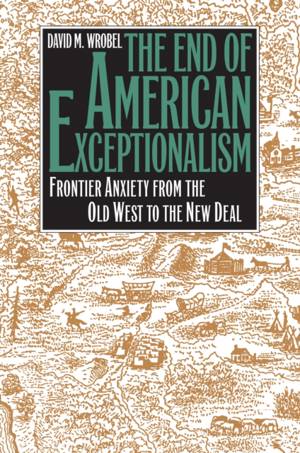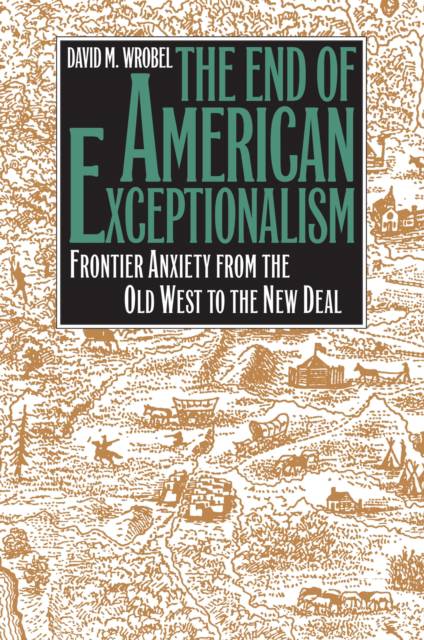
- Retrait gratuit dans votre magasin Club
- 7.000.000 titres dans notre catalogue
- Payer en toute sécurité
- Toujours un magasin près de chez vous
- Retrait gratuit dans votre magasin Club
- 7.000.0000 titres dans notre catalogue
- Payer en toute sécurité
- Toujours un magasin près de chez vous
The End of American Exceptionalism
Frontier Anxiety from the Old West to the New Deal
David M Wrobel
Livre broché | Anglais
34,45 €
+ 68 points
Description
The American frontier was officially closed, according to the U.S. Census Bureau, in 1890. Yet more homesteads were settled in the first few decades of the twentieth century than in the entire nineteenth century. "Frontier anxiety," then, really was caused not by the closing of the frontier, but by the perception that the frontier was closing, argues David Wrobel. As early as the 1870s and through the 1930s, many Americans believed an important era had ended and worried about how this closure would affect society and democracy. The perceived expiration of a uniquely American way of life had an impact not only on the literature of the day but on public policy as well. While Frederick Jackson Turner and other intellectuals lamented nostalgically about the end of an era dominated by the rugged individualist and westward expansion, Zane Grey and other novelists brought to life cowboys and pioneers from bygone days who were more myth than reality. Presidents from Teddy Roosevelt to Franklin Roosevelt focused on the vanishing western frontier and its influence on the frontiers of the future. In The End of American Exceptionalism, Wrobel illustrates more than just how the perceived demise of the frontier brought about a longing for wilderness and the pioneer spirit. He emphasizes how it influenced debate on public land and immigration policy, expansionism, and the merits of individualistic and cooperative political systems. In addition, he relates how it affected and was affected by such diverse social and political issues as racism, industrialization, irrigation, tenant farming, class struggle, government intervention, and the naturalist movement. Wrobel doesn't focus rigidly on Turner or question the originality of Turner's thesis--that the frontier molded the nation's character--as historians have done in the past. Instead he suggests that the writings of Turner and other intellectuals were symptomatic of a frontier anxiety that began to take hold in the 1870s. Concentrating on the notions of these intellectuals over several decades, Wrobel shows how their reactions to the perceived ending of American exceptionalism--created by a unique frontier experience--helped shape the nation's cultural and political future.
Spécifications
Parties prenantes
- Auteur(s) :
- Editeur:
Contenu
- Nombre de pages :
- 256
- Langue:
- Anglais
Caractéristiques
- EAN:
- 9780700607815
- Date de parution :
- 29-01-93
- Format:
- Livre broché
- Format numérique:
- Trade paperback (VS)
- Dimensions :
- 154 mm x 230 mm
- Poids :
- 349 g

Les avis
Nous publions uniquement les avis qui respectent les conditions requises. Consultez nos conditions pour les avis.






